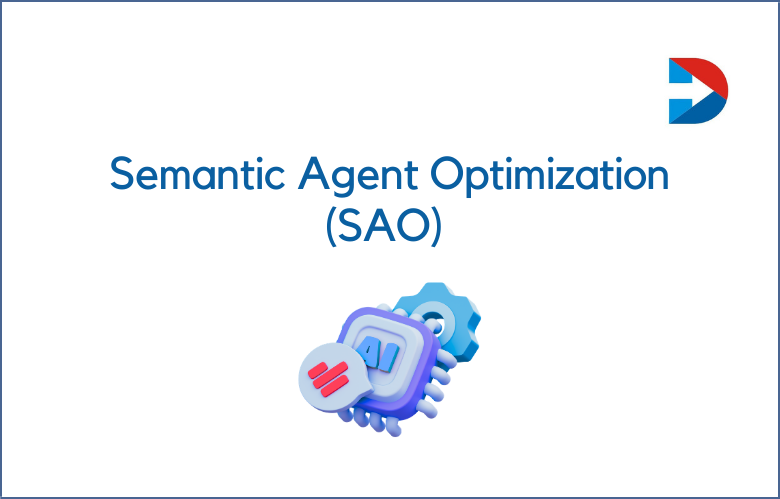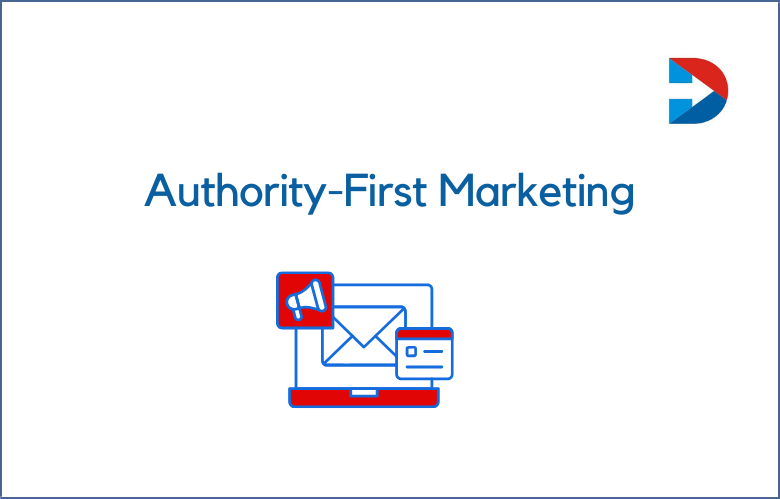As the age of mobile usage continues to rise, businesses are shifting their marketing efforts to include vernacular SEO. Voice Search is projected to overtake written search by 2021, and video content will soon be more popular than any other type of content on social media. So how should you make your business stand out in this new world? Read on for tips & strategies!
The future of Vernacular SEO is here! In this blog post, we will be exploring how voice and video are being utilized to engage with customers in a more personalized way. We’ll also share some tips to help you get started with vernacular SEO for your business.
What is a Vernacular SEO?
Vernacular SEO is a search engine optimization focusing on search terms relevant to your business or target audience. To do so, you must first learn about the interests and lifestyles of those people.
A vernacular SEO is a search engine optimization technique that focuses on the content of your website to attract customers.
A vernacular SEO is a type of search engine optimization that focuses on the local market.
A Vernacular SEO creates content accessible to everyone by writing it in plain language.
Vernacular SEO: An In-depth Analysis
An in-depth analysis of the vernacular SEO. Focusing on its importance, you will learn about search engine optimization and discover examples of promoting a business or website.
Vernacular SEO: A deep dive into the world of search engine optimization. In this article, I will explore vernacular SEO and explain how to optimize your website.
A vernacular SEO is a search engine optimization strategy that focuses on words used in everyday language. They are different from keyword phrases because they encompass the overall context of the content surrounding them.
The benefits of vernacular SEO
- Vernacular SEO is the most natural way to express yourself online
- The best part is that you don’t need special skills or knowledge- anyone can learn how!
- It’s an effective way to rank well on search engines because Google recognizes your content as relevant and valuable for searchers, which means more traffic for you!
- Vernacular SEO is easier to rank for because it’s more specific to your location
- people are more likely to search for something they know the name of, so there’s a higher chance of them finding you
- keywords can be used in your URL and title tags which will help with ranking
Why you should invest in vernacular SEO
There are two reasons why you should invest in vernacular SEO. First, it can increase your site’s ranking on Google and other search engines because it helps sites rank better locally. Secondly, the majority of Internet users worldwide use different languages.
Investing in vernacular SEO is essential to help you build your brand locally, which is vital for small businesses.
There are many reasons why people use vernacular SEO. The most common ones include search engine rankings, mobile-friendliness, faster page loading time, and higher ad clickthrough rate.
Here are a few tips for using Vernacular SEO correctly and effectively
- Make sure your content is original
- Use keywords in the title, headings, and text of your articles
- Include links to other relevant articles on the same topic
- Link to related pages within your site for increased engagement
- Create a blog about issues that are interesting to you
- Use keywords in the title of your blog posts
- Include keywords in the first paragraph of your post
- Create a listicle with five tips, ten tips, or 20 tips
- Add links to other articles you’ve written on your site that are related to the topic at hand
- Include relevant images
- Use keywords in the title of your website
- Include keywords in the meta description and meta tags for your site
- Keep keyword density below 1%
- Don’t use too many words irrelevant to what you’re trying to promote.
- Research the top keywords for your industry.
- If you’re a small business, create an About Us page and link to it from every page on your site.
- Use citations in Google’s Knowledge Graph with Schema markup
- Add structured data markup to help search engines better understand what information is on each page of your website
- Create high-quality content that includes long-tail keywords
Reasons Why Your Site Needs Vernacular SEO
- Vernacular SEO is a form of search engine optimization that utilizes the languages and dialects of regions to target searches better
- your site needs to use language that people in your area would understand rather than using jargon or technical terms
- Vernacular SEO can help you reach more customers in your area who are looking for products like yours
- Vernacular SEO enables you to avoid frustrating users with difficult-to-understand content
- Vernacular SEO is better for local businesses
- It’s easier to rank in Google searches
- You’ll get more traffic from people who speak your language
- Your site will be easier to navigate if you use the exact words as your customers
- Vernacular SEO is a great way to attract more traffic
- The right keywords can lead to higher rankings in search engines
- Vernacular SEO can help you find the best content for your site’s audience
- You’ll get better results if your keywords are used naturally throughout your website
- Vernacular SEO is the best way to target your audience
- Vernacular SEO can help you rank higher in search engine results pages (SERPS)
- Correctly optimized content can be translated into different languages for an international audience
- Localized marketing campaigns are easier to manage with localized content
- It’s easy to make changes and updates when needed
- Your site needs to be optimized for mobile
- You need to be able to rank in the search engines
- Google is now using more than 200 ranking factors
- You want your site’s content to be found by people searching for it.
- Vernacular SEO helps you optimize your website with relevant and meaningful keywords for your customers.
How to Correctly Setup Your Vernacular SEO?
If you want to rank well for any search term, ensure your content is created in the Vernacularoaby of that field. You can easily do this by providing your article uses words like ‘best’ and ‘greatest’ instead of super.
Correctly configuring your website’s SEO can be quite a pain. However, if you follow the simple steps below, there’ll be no problem!
Does language affect SEO?
Yes, language can affect SEO. This is because Google and other search engines use keywords to evaluate a page’s relevance for searching terms.
SEO is “search engine optimization,” which refers to making website content more visible in search engines. This is done by using different techniques, including language.
What is Google Rankbrain?
Google Rankbrain is a machine-learning artificial intelligence system created to help Google’s leading search engine provide the most relevant results. It also helps identify spam and low-quality content so it can be filtered out of search results.
Google Rankbrain is a machine learning system. The technology learns from searches and makes suggestions based on those learnings.
Google Rankbrain is a machine learning system that uses artificial intelligence to recognize the relationship between search queries and web pages. Google uses it to consider different approaches when ranking documents, determining where results appear in response to a user’s question.
Google Rankbrain is a machine-learning artificial intelligence system that Google uses for search results.
Scope of Vernacular SEO in the Future
Vernacular SEO is a new type of search engine optimization. It focuses on optimizing the page for the reader, not for Google’s machines.
Vernacular SEO is essential to search engine optimization because it helps you gain a competitive edge.
Vernacular SEO is a growing industry, and I believe it will be more critical than ever.
While the future of SEO is uncertain, it’s best to work on vernacular SEO for now. After all, many different kinds of vocabulary are helpful when searching for a store or restaurant in your area.
There will be more use cases for vernacular search in the future, making it easier to find information.
How to set up language SEO?
First, you should use semantically related keywords. Next, add a sitemap and optimize it. Finally, build links to your site by finding relevant blogs and commenting on them in your niche.
The first thing to do is optimize the page to be readable by a machine. You can use a tool like Moz or GSC to check your SEO, but it’s also possible to test this manually.
Because language is the primary content on a website if you want to set up language SEO, ensure that your pages are well-written and easy for users to understand.
You must create content for other languages to succeed in the global market. It’s a great way to get more people interested and attract new audiences.
To set up language SEO, you must go into your blog’s settings and change the language from “English” to another.
How Vernacular SEO Improves Vernacular Traffic by 200%
Vernacular is a type of language that developed naturally over time. It has influenced the development of other languages but has remained unchanged for hundreds or thousands of years. Vernacular is still spoken today.
I’ve been doing vernacular SEO for several years now. I use it in addition to my regular SEO to get more traffic than ever.
Voice, Video & Vernacular SEO Tips & Strategies:
Voice search technology has evolved over three years and can now comprehend conversational speech. Many companies are still not adapting their SEO strategies to this new technological development.
Voice search is becoming more and more common. It’s predicted to be the default way of searching for information, yet most businesses aren’t prepared!
Best Voice SEO Tips & Strategies
When optimizing your site for voice search, the most important thing to remember is to use keywords in the page content. Don’t just repeat what you hear, though! Instead, try to expand on the topic and include more than one keyword. Ranking videos takes time and effort. You’ll need the correct title, the proper tags, and good descriptions for each video to rank a video. In addition, you should try your best to engage with other people who will talk about it.
- Include keywords in your voice search queries.
- Use natural language when speaking to Siri or Alexa
- Speak slowly and clearly, avoiding slang
- Speak with an accent if it is relevant to the product you are selling (e.g., don’t speak with a British accent for a hair salon)
- Use keywords in your title.
- Optimize for voice search with conversational content relevant to the user’s query.
- Create a page for each keyword you want to rank well for, rather than just one generic page.
- Optimize your site structure so that Googlebot or other crawlers can easily crawl it.
- Make sure your website loads quickly on all devices
- Use long-tail keywords to optimize your page content
- Optimize your meta tags for voice search
- Include a video transcript on the page so people can find it with text searches.
- Create an FAQ section on your site and give answers in natural language
- Add transcripts to videos and transcribe podcasts
- Create a video with your voice on YouTube
- Use keywords in the title of your videos
- Add links to your website or blog posts for each video you upload in the description box.
- Include links to other relevant content on YouTube, such as a playlist of videos from one topic.
- Keep your content relevant to the topic of your business
- Use a variety of keywords in your content
- Include appropriate links and images for SEO purposes
- Use keyword phrases as tags on social media posts
- Add descriptive tags to your video
- Include keywords in the title and description of your video
- Make sure you have a good thumbnail image for your video, or it won’t be easy to find on YouTube
- Upload an unlisted version of the video before publishing so that only people with direct links can see it
- Link to other videos within your channel as well as outside sources like blogs or websites
- Optimize your videos with a title and description
- Add tags to your video before publishing it on YouTube
- Create a playlist of similar videos for easier discovery by viewers
- Publish your video as “unlisted” instead of “public” if you want to control who sees it first
- Make sure that the thumbnail image is compelling and relevant to the content of the video
- Use descriptive keywords in your video’s title and description
- Include a call-to-action in the caption of your video that directs viewers to subscribe or buy something from you
- Make sure that all videos are uploaded at the highest possible quality setting, which is 1080p HD for YouTube and 720p HD for Facebook
- Keep videos short – less than 5 minutes long
- Add links to relevant websites or social media accounts on the video page.
- Use keywords in the title, description, and tags.
- Include your website URL in the video’s description or as an annotation
- Optimize your videos for search engines by adding descriptive titles and descriptions with relevant keywords to make it easier for people to find you on YouTube or Google
- Add a transcript of what is being said in your video so viewers can read along while they watch it
- Include keywords in the description of the video
- Use tags to categorize videos and make them easier to find
- Upload your videos to YouTube, Vimeo, Dailymotion, or any other popular video site that is relevant to your niche
- Add a link back to your website at the end of every video you upload
Best Vernacular SEO Tips & Strategies
If you want to succeed, you must know what you’re doing. You don’t need much experience and technical knowledge because everybody can optimize their website for search engines by following some basic rules.
- Use keywords in your title and domain name.
- Make sure that the content on your website is readable and informative
- Create a blog to attract new visitors who will return for more information
- Add social media buttons to make it easier for people to share your content with their friends or followers
- Include links within your site, such as from one article to another or from an article about you, back to your home page
- Create a Google My Business account
- Optimize your website for the best SEO practices
- Use keywords in your content and meta tags to maximize search engine optimization.
- Link out to other websites with similar topics, but don’t spam them with links! This is called “link building,” and it’s essential for getting higher rankings on Google.
- Register your site with Bing Webmaster Tools for more information about how people find your location, including which pages they click on.
- Use keywords in your page titles, headings, and content
- Optimize for search engine crawlers by making sure you have an XML sitemap
- Include a meta description on each page of your site that is relevant to the content on that page
- Add a nofollow tag to any external links you include in your posts or pages
- Link internally between pages of your site using the keyword anchor text “click here.”
- Use keywords in your title tags.
- Include the keyword you are targeting on every page of your website
- Write blog posts that are relevant to what you’re selling
- Link to other pages of your site from within those pages, as well as external sources like Wikipedia and YouTube videos about the topic
- Make sure there is a link back to your website on any social media account
- Use a keyword-rich domain name
- Optimize your website for search engines with keywords and descriptions
- Engage in social media marketing to drive traffic to your site from other sites, such as Facebook, Twitter, Instagram, etc.
- Create compelling content people want to share on their social media channels.
Conclusion:
Have you heard about Vernacular SEO? It’s a new way to optimize your website to rank better in search engines for specific keywords. This strategy is perfect if you want to get more traffic from people searching for something specific on Google or Bing, but the competition is too high, and your site doesn’t show up without entering at least one word of the keyword into the search bar. We can help with this type of marketing campaign- contact us today!



